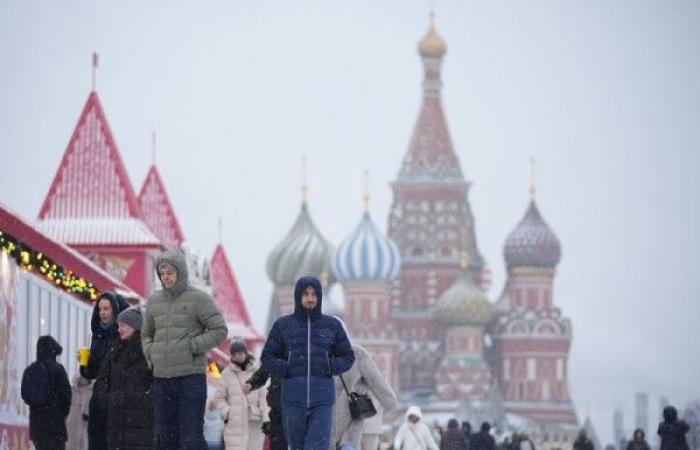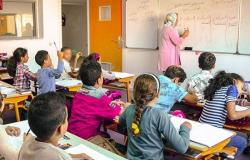
Difficulties are piling up after three years of war: persistent labor shortages, exorbitant bank loans, growing risks of bankruptcies, and even a slowdown in activity expected this year.
Inflation accelerated in December in Russia to 9.5% at an annual rate, the national agency Rosstat announced on Wednesday, despite the efforts of the central bank to curb it by maintaining its key rate at a record level in 20 years.
This bad news comes at a time when difficulties are accumulating after three years of conflict in Ukraine which is weighing on the economy.
Among the areas of concern, persistent labor shortages, exorbitant bank loans, the growing risks of bankruptcies, and even a deceleration in activity expected this year.
Despite everything, the Kremlin seems determined to maintain its offensive whatever the cost to obtain “victory” in Ukraine, an objective hammered home by Vladimir Putin.
In November, inflation, fueled in particular by the federal budgetary impulse to support the assault on neighboring Ukraine and its consequences, had reached 8.9%, already well above the official objective of 4%.
In 2023, inflation stood at 7.4% year-on-year.
The high rise in prices is eating into the purchasing power of Russians. At the end of 2024, the explosion in butter prices (+36% over one year according to Rosstat) made headlines in the Russian press, recalling the panic caused in 2023 by the rise in egg prices.
Inflation — and the means to counter it — also fuels debates within the political and economic class.
In December, Russian President Vladimir Putin described the rise in prices as “a worrying signal”, a rare admission from the master of the Kremlin who praises the resistance of the national economy in the face of heavy Western sanctions.
Since the start of the assault in Ukraine three years ago, the head of the Central Bank of Russia (BCR) Elvira Nabiullina says she has only one objective: to contain the rise in prices to protect the majority of Russians, concerned about their purchasing power, even if it means sacrificing growth.
The BCR’s key rate has been at 21% since the end of October, a record since 2003.
Grumbling from the bosses
But this decision to fight inflation with a high interest rate policy no longer pleases Russian employers at all, who have made it known publicly, a rare occurrence in Russia.
Several major entrepreneurs, whose words count in the Kremlin, such as that of German Gref, the boss of the large national bank Sberbank, have publicly denounced the monetary policy of the BCR.
“The economy cannot survive like this for long,” Mr. Gref scathed at the beginning of December, while the boss of the military-industrial conglomerate Rostec, Sergei Tchemezov, close to Vladimir Putin, described the level of rates as “madness.” of interests.
In their eyes, the cost of borrowing – with rates oscillating between 25 and 30% – is currently far too high, and therefore does not encourage investment. A problem which will, according to them, significantly slow down the national economy.
Their discontent had pushed the Central Bank to maintain its key rate at 21% in December, despite inflation still rising.
In Russia, inflation is fueled in particular by the explosion in military spending for the assault in Ukraine, the effects of sanctions and rising wages, a direct consequence of labor shortages on the job market. , companies being obliged to offer attractive remuneration to recruit.
These shortages are the result of the departure of hundreds of thousands of men to the Ukrainian front or abroad since February 2022.
Inflationary pressure and sanctions are also weighing on the ruble. And Washington and London announced last week additional restrictions massively targeting the Russian oil sector, a vital source of revenue for Moscow.
Faced with these headwinds, the Central Bank of Russia anticipates a pronounced deceleration in GDP growth for 2025, forecast between 0.5 and 1.5%, compared to more than 3.5% expected for 2024.
Under these conditions, it is “difficult to believe” in a significant decline in price increases this year, according to Russian market analysts from the Austrian bank Raiffeisen: “A fall in inflation will be hampered by a set of direct consequences and indirect sanctions.





